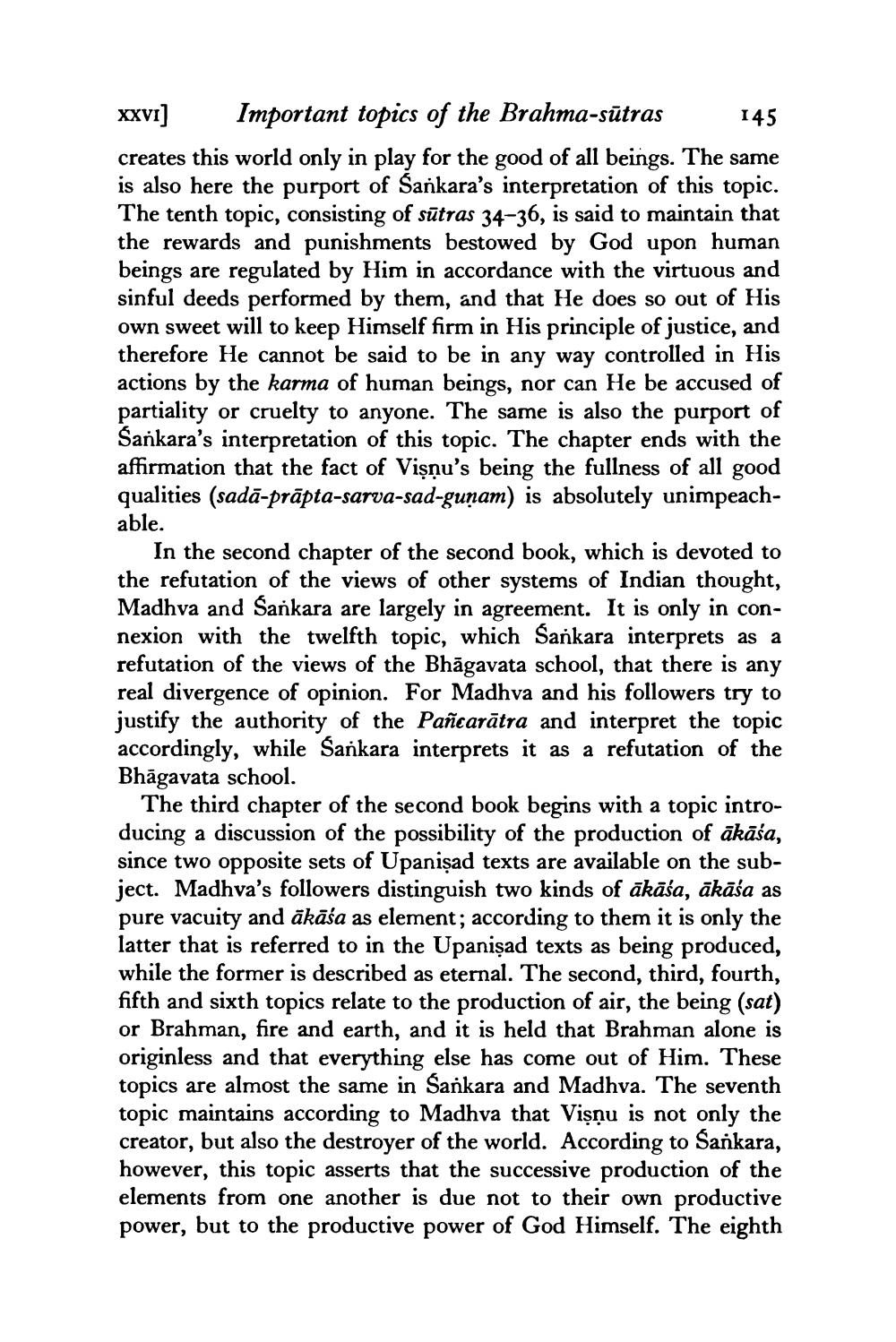________________
XXVI] Important topics of the Brahma-sūtras 145 creates this world only in play for the good of all beings. The same is also here the purport of Sankara's interpretation of this topic. The tenth topic, consisting of sūtras 34-36, is said to maintain that the rewards and punishments bestowed by God upon human beings are regulated by Him in accordance with the virtuous and sinful deeds performed by them, and that He does so out of His own sweet will to keep Himself firm in His principle of justice, and therefore He cannot be said to be in any way controlled in His actions by the karma of human beings, nor can He be accused of partiality or cruelty to anyone. The same is also the purport of Sankara's interpretation of this topic. The chapter ends with the affirmation that the fact of Vişnu's being the fullness of all good qualities (sadā-prāpta-sarva-sad-gunam) is absolutely unimpeachable.
In the second chapter of the second book, which is devoted to the refutation of the views of other systems of Indian thought, Madhva and Sankara are largely in agreement. It is only in connexion with the twelfth topic, which Sankara interprets as a refutation of the views of the Bhāgavata school, that there is any real divergence of opinion. For Madhva and his followers try to justify the authority of the Pañcarātra and interpret the topic accordingly, while Sankara interprets it as a refutation of the Bhāgavata school.
The third chapter of the second book begins with a topic introducing a discussion of the possibility of the production of ākāša, since two opposite sets of Upanişad texts are available on the subject. Madhva's followers distinguish two kinds of ākāśa, ākāśa as pure vacuity and ākāśa as element; according to them it is only the latter that is referred to in the Upanişad texts as being produced, while the former is described as eternal. The second, third, fourth, fifth and sixth topics relate to the production of air, the being (sat) or Brahman, fire and earth, and it is held that Brahman alone is originless and that everything else has come out of Him. These topics are almost the same in Sankara and Madhva. The seventh topic maintains according to Madhva that Vişnu is not only the creator, but also the destroyer of the world. According to Sankara, however, this topic asserts that the successive production of the elements from one another is due not to their own productive power, but to the productive power of God Himself. The eighth




